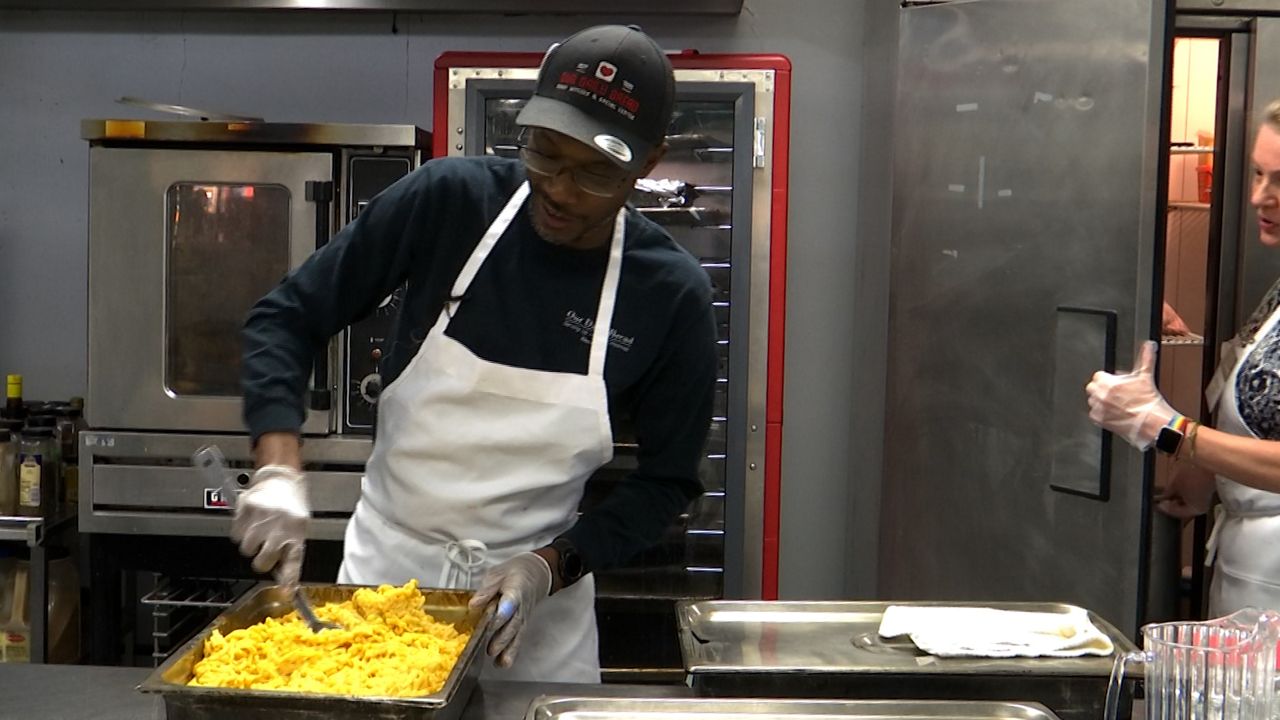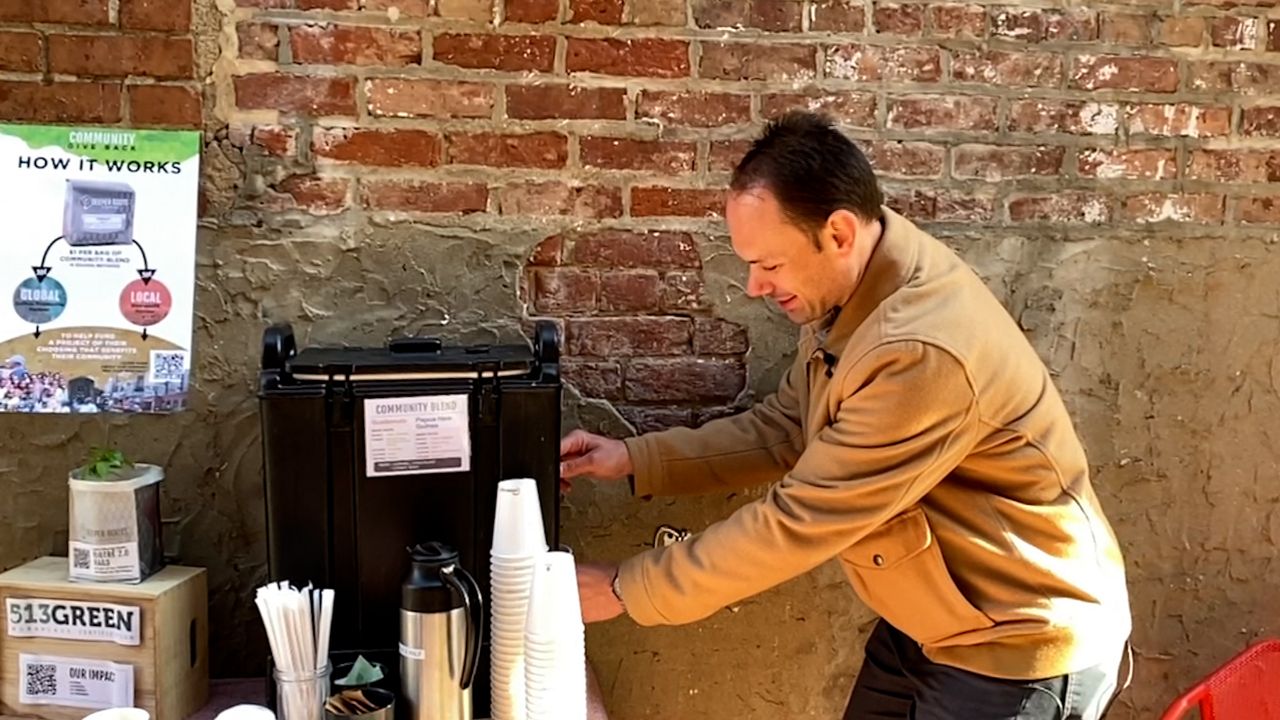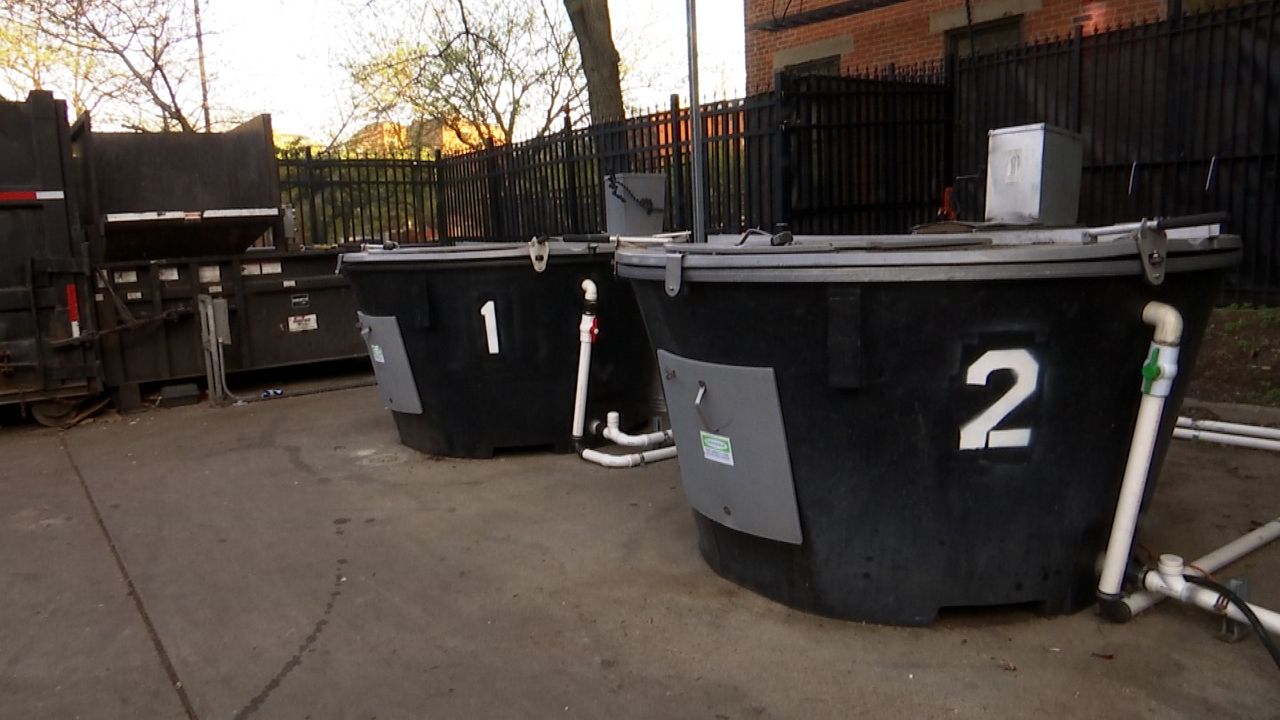CINCINNATI — In Our Daily Bread’s kitchen, some days you might find steak on the stove, fresh peppers on the cutting boards and pastries ready to be served up to the hundreds of clients who stop by every day.
It all depends on what food local grocery stores and restaurants deem excess that given week. The food at Our Daily Bread is 100% rescued or donated, allowing the nonprofits to cut back on the region's food waste while ensuring anyone can access a hot meal.

To raise awareness of the impact of food waste and what can be done to prevent it, Hamilton County R3source hosted its first “Wasted Food Stops with Us Day.” Our Daily Bread was one of the organizations and businesses that got to highlight the work they do.
“There’s so much food going to waste, and there’s so many people that need it,” Garland Butts, Our Daily Bread’s head chef said, while preparing the day’s meal.
On Wednesday morning, they served steak tips and mashed potatoes, donated from Capital Grille as leftovers from a previous dinner service. Every morning, Butts takes those donations and turns them into a new hot meal to serve for free to the clients who stop by their dining room.
Otherwise, that food would head straight for a landfill, while one in six people in Hamilton County wonder where their next meal will come from.
“There’s no reason not to donate,” Butts said.
According to Feeding America, in 2019, 130 billion meals worth of food went to waste across the country, but while food rescue has become a growing part of the efforts to cut back on that waste, Hamilton County R3source also wanted to highlight ways to dispose of food in a less wasteful way.
Tony Staubach, the food waste diversion coordinator for the county, started “Wasted Food Stops with Us” day at Deeper Roots coffee, explaining how the 513 Green certified business keeps much of their waste out of local landfills.
“They compost all of their coffee grounds, they work to be more sustainable in offering front of the house composting,” he said.

Composting, or the process of recycling organic matter, converts food waste into fertilizer and in Hamilton County, R3source estimates between 30-50% of organic material in its landfills could have gone to compost instead.
“Composting is so easy in Hamilton County,” Staubach said.
At its Over-the-Rhine location, Deeper Roots has its solution just across the street. Findlay Market picks up their compost, as well as the food scraps from other partner businesses around the market, once a day and takes it to their on-site composting facility.
The market also offers a residential program allowing locals to rent a bucket and drop off their food waste for the market to compost for them.
“They put them into these digesters to turn them into nutrient-dense material,” Staubach said.

Staubach wanted to draw particular attention to that program because while businesses have so many diversion programs available, residential waste makes up more than a third of what ends up in landfills.
“Consider backyard composting,” he said. “And try to only purchase what you’re going to use. Think about what you’re going to make, think about what you like to make, think about what you like to eat and just buy those products.”
At the end of the day, Staubach said he wants people to consider the costs of food waste, but not only through the lens of how expensive it can be to throw out bad food from your fridge.
If food rots on your shelf, it goes in the trash, but if you chose not to buy it and it stayed in the store, it’s more likely to head to kitchens like Our Daily Bread.
“It’s saving the landfills and also helping us provide for meals for the community,” Butts said.
While Staubach admitted it’s difficult to avoid throwing out any food waste, he hopes by revealing the options available, more across the county will find ways to prevent more from ending up in area landfills.
“It starts with all of us,” he said.
